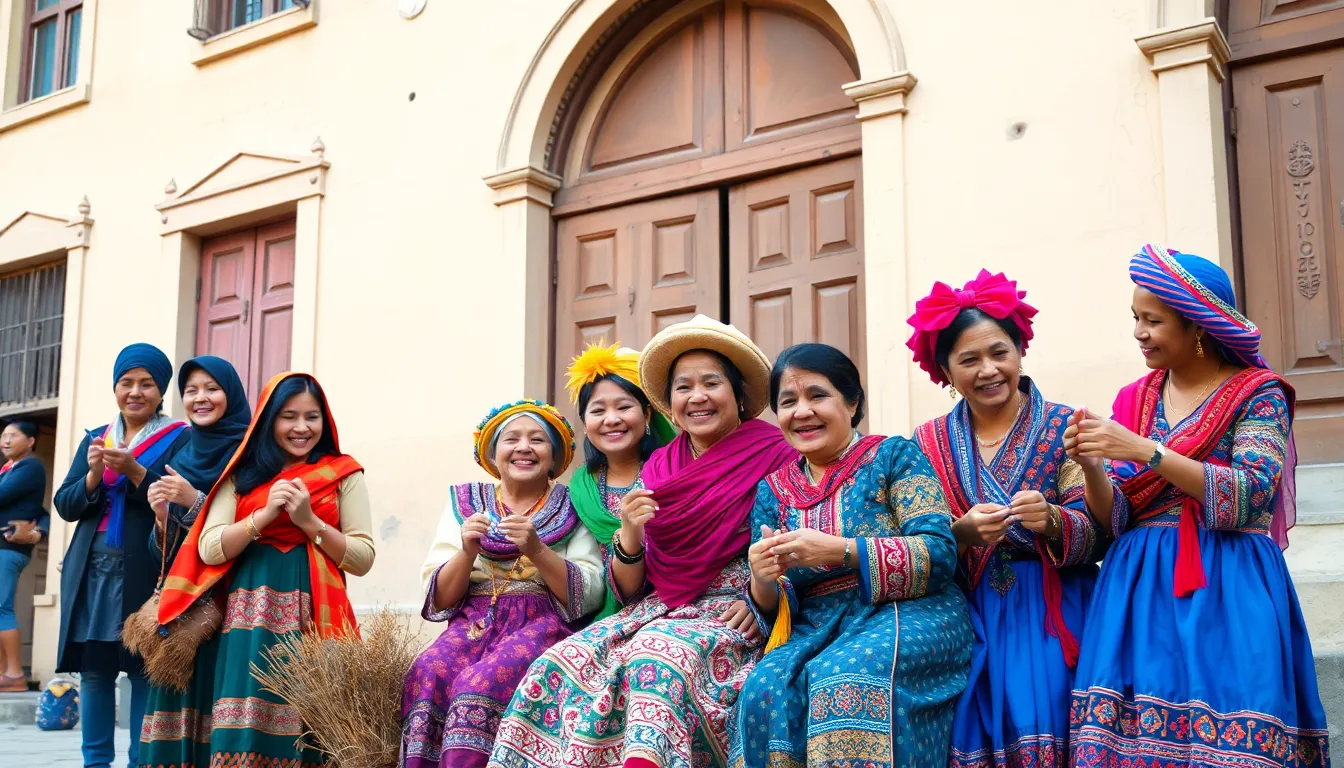Heritage chronicles serve as vital records of cultural history, preserving the stories that shape communities and identities. These narratives, passed down through generations, highlight the rich tapestry of traditions, customs, and experiences that define a people. In a world increasingly influenced by globalization, understanding and celebrating these chronicles becomes essential for maintaining cultural diversity.
Exploring heritage chronicles not only fosters a sense of belonging but also inspires future generations to appreciate their roots. By documenting these stories, individuals contribute to a collective memory that honors the past while guiding the future. As societies evolve, the importance of these chronicles grows, reminding us of the values and lessons embedded in our shared history.
Table of Contents
ToggleOverview of Heritage Chronicles
Heritage chronicles serve as vital records that encapsulate the cultural history and narratives of communities. They play an essential role in preserving the shared stories that shape identities and foster a sense of belonging.
Definition and Importance
Heritage chronicles encompass written, oral, and visual records that document traditions, events, and practices within a culture. They are important for several reasons:
- Cultural Preservation: Chronicles maintain the integrity of cultural practices and beliefs, ensuring they persist through generations.
- Identity Formation: These narratives anchor individuals to their origins, helping define their cultural identity.
- Educational Value: They serve as learning resources, teaching people about their ancestry and the lessons embedded in historical events.
- Community Connection: Chronicles foster community bonds by sharing collective experiences and reinforcing social cohesion.
Historical Context
Heritage chronicles date back to ancient civilizations that relied on storytelling to transmit knowledge and values. Notable historical examples include:
- Oral Traditions: Many indigenous cultures utilized storytelling as a primary means of preserving history before written records emerged.
- Written Records: Chronicles like the Iliad and Odyssey captured significant cultural narratives that remain influential.
- Archival Materials: Historical documents, such as letters and diaries, provide insights into the lives and experiences of past generations.
Understanding the historical context of heritage chronicles illuminates their evolution and enduring significance in shaping contemporary cultural landscapes.
Key Themes Explored in Heritage Chronicles

Heritage chronicles encompass various themes that reveal the richness of cultural narratives. Two key themes include cultural identity and the preservation of traditions, both of which play crucial roles in understanding and appreciating heritage.
Cultural Identity
Cultural identity represents a central theme in heritage chronicles. These chronicles reflect the values, beliefs, and customs that define a community. They provide insights into how individuals relate to their cultural backgrounds, fostering a sense of belonging. For instance, personal stories often highlight the struggles and triumphs faced by various groups, reinforcing unique identities shaped over generations. The integration of diverse narratives contributes to a broader understanding of societal dynamics, encouraging respect for differences and shared experiences.
Preservation of Traditions
Preservation of traditions is another vital theme in heritage chronicles. These records maintain practices, rituals, and beliefs that form the foundation of cultural heritage. By documenting these aspects, heritage chronicles serve as a resource for future generations, ensuring that valuable cultural expressions remain intact. An example includes the documentation of traditional crafts, musical forms, and culinary practices, which thrive through storytelling. This preservation strengthens community bonds and promotes intergenerational dialogue, allowing traditions to evolve while rooted in their historical significance.
Notable Works and Authors
Heritage chronicles showcase a diverse array of works and authors who contribute significantly to cultural documentation. Both established and emerging voices play critical roles in preserving narratives and traditions.
Influential Contributions
Influential contributions in heritage chronicles come from various authors who dedicate their works to exploring cultural histories. Figures like Chinua Achebe and Gabriel García Márquez weave intricate tales that reflect their societies’ dynamics. Margaret Atwood’s essays explore themes of identity and history within cultural contexts. Other notable works include:
- “Things Fall Apart” by Chinua Achebe: This novel examines the effects of colonialism on traditional Igbo culture.
- “One Hundred Years of Solitude” by Gabriel García Márquez: It captures the magical realism of Latin American heritage and cultural identity.
- “The Tenure of Kings” by Margaret Atwood: This collection highlights intersections between heritage and contemporary issues.
Each of these authors contributes unique perspectives, enhancing the understanding of how heritage shapes modern identity and community.
Emerging Voices in Heritage Literature
Emerging voices in heritage literature bring fresh insights and narratives that enrich cultural documentation. Writers like Ocean Vuong and Lizette Lizette are gaining prominence for their explorations of identity and belonging through personal stories. Other noteworthy authors include:
- Ocean Vuong: His poetry reflects on Vietnamese heritage and the immigrant experience.
- Lizette Lizette: Her narratives highlight the complexities of blended identities in multicultural environments.
- Yaa Gyasi: Known for “Homegoing,” which explores the legacy of African heritage across generations.
These emerging authors emphasize the evolving nature of cultural identity, ensuring that contemporary issues are woven into the fabric of heritage chronicles.
Impact on Society and Culture
Heritage chronicles significantly influence society and culture by shaping perceptions, fostering understanding, and promoting awareness of diverse histories. These records serve as vital tools for education, cultural preservation, and the cultivation of future generations.
Role in Education and Awareness
Heritage chronicles play a critical role in education by serving as repositories of knowledge about cultural practices, historical events, and societal norms. They provide invaluable resources in academic settings, enabling students and educators to explore their heritage and understand its significance. Engaging with these narratives enhances cultural awareness and empathy, allowing communities to recognize their interconnectedness. Classroom discussions that incorporate heritage chronicles encourage critical thinking about identity and difference, fostering a broader perspective on social dynamics.
Influence on Future Generations
Heritage chronicles substantially impact future generations by instilling a sense of pride and belonging. By preserving stories and experiences, they encourage younger individuals to explore their identities rooted in historical contexts. Children and adolescents connect with their ancestry through written and oral traditions, reinforcing cultural values and traditions. This connection assures continuity, as individuals carry forward lessons from the past, shaping their understanding of personal and communal identities. Heritage chronicles empower future generations to engage thoughtfully with their histories, contributing positively to societal narratives while fostering cultural resilience.
Heritage chronicles play a crucial role in preserving cultural narratives that shape identities and foster community connections. They serve as vital records that not only honor the past but also guide future generations. By engaging with these chronicles, individuals gain a deeper appreciation for their roots and the diverse histories that enrich their lives.
The ongoing exploration of heritage chronicles ensures that cultural practices and traditions remain alive, promoting intergenerational dialogue and understanding. As new voices emerge in this field, the narratives continue to evolve, reflecting contemporary issues while grounding individuals in their histories. Ultimately, heritage chronicles empower communities to embrace their identities and contribute to a more inclusive cultural landscape.









